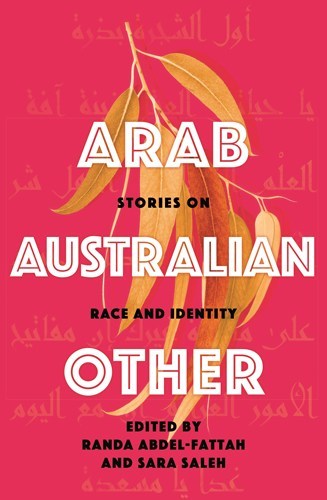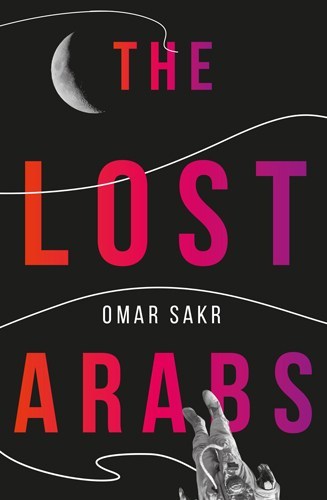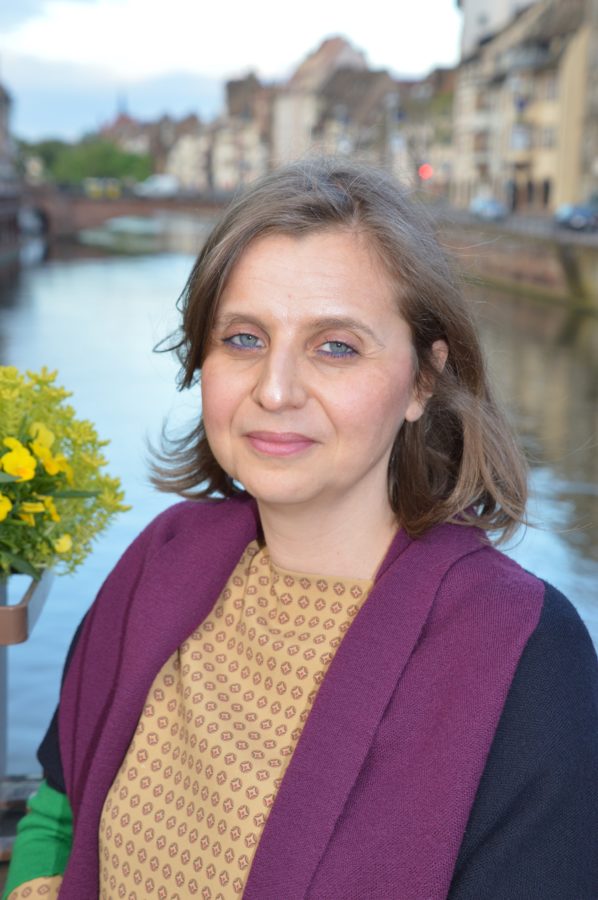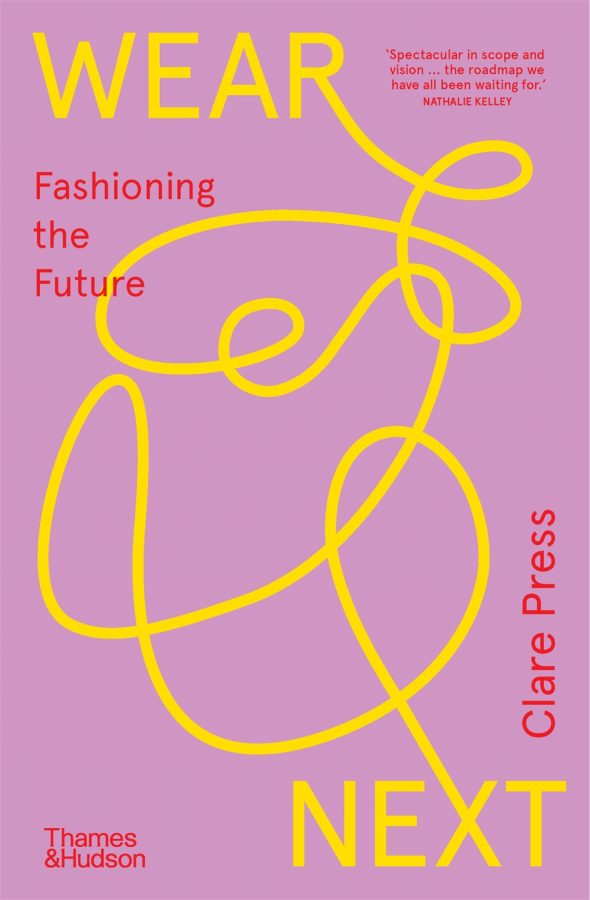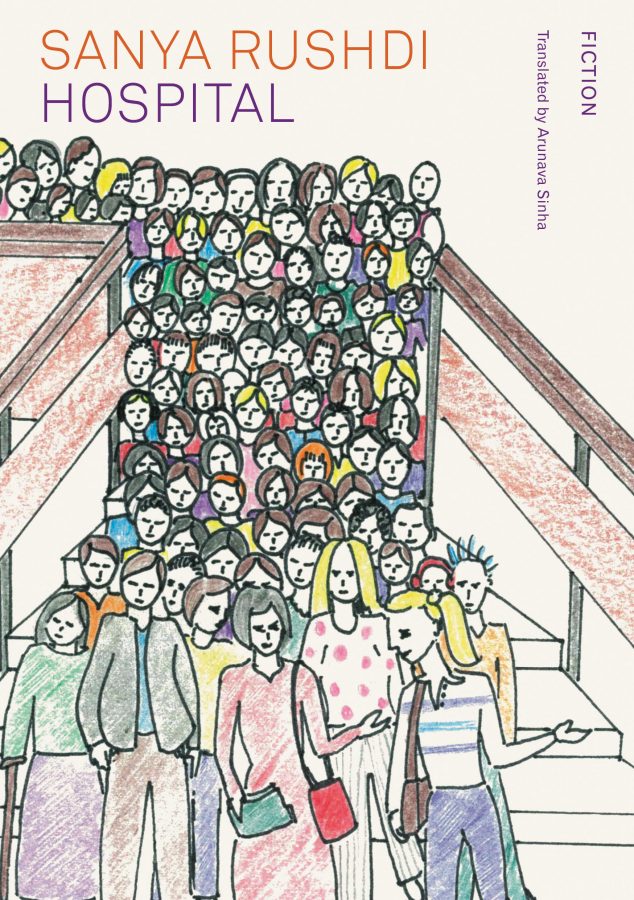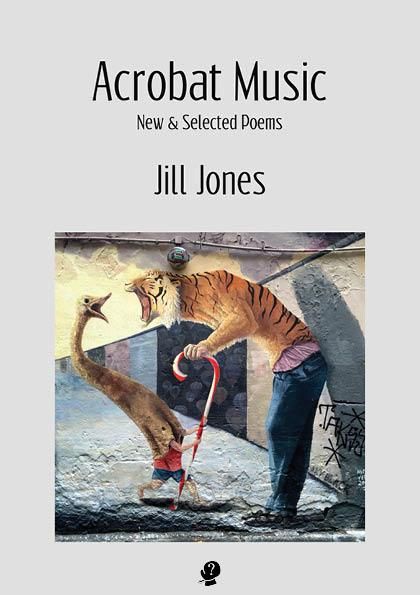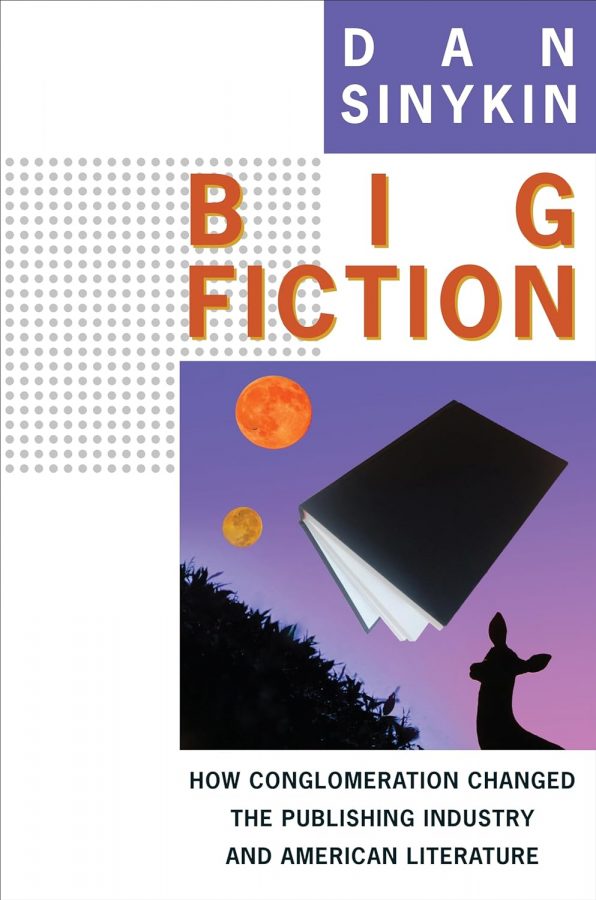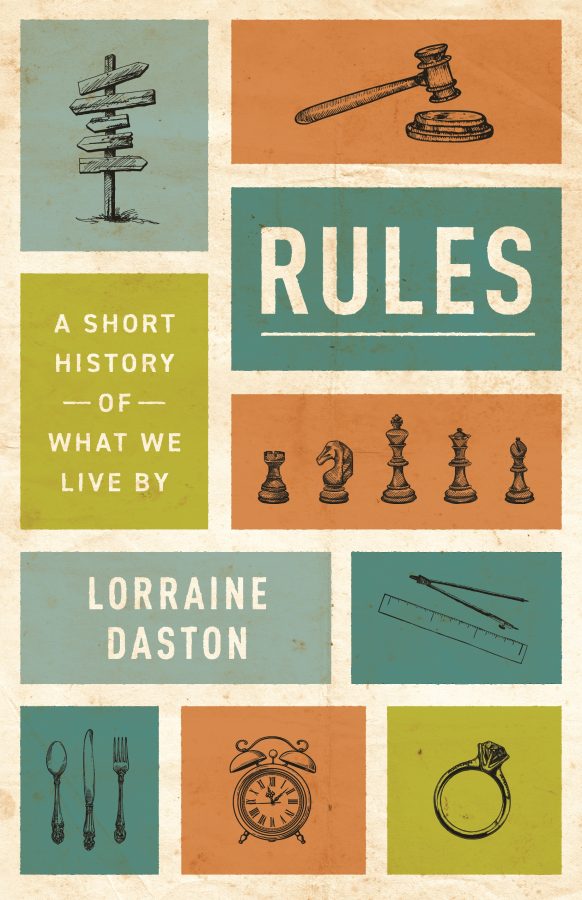At the start of the millennium, the Arab in Australia emerged as the pre-eminent ‘folk devil’ of our time. While 9/11 in 2001 and the Skaf gang rapes in 2000 were flash points that gave rise to this designation, the Othering of Australia’s Arab diaspora communities predates our current era. Like other Western nations, Australia has long considered the Muslim Arab as the opposite to its Western and Christian moral values. This perception unsurprisingly preoccupies the work of many Arab-Australian authors, whose writings offer creative insights into the impact of the marginalisation of Arabs in Australia. Two recent examples from the growing oeuvre of Arab-Australian writing are Omar Sakr’s poetry collection, The Lost Arabs, and a series of stories, Arab, Australian, Other: Stories on Race and Identity, edited by Randa Abdel-Fattah and Sara Saleh. Focusing on race, gender and sexuality, these texts draw attention to specifically Australian instances where the Arab is Othered and demonised.
In Sakr’s collection, the Arab is rendered a lost figure, scarred or wounded by the racism and displacement he faces. This is made evident in the book’s title work, ‘The Lost Arabs’, which condenses issues of race, Islamophobia, exclusion, and marginalisation into a poem of 32 lines. The poem is divided into 16 couplets that oscillate between staccato and fluid rhythmic patterns, producing a tension that reflects both the urgency to address these issues and their endurance. Take, for instance, Sakr’s confession:
Would you believe I keep trying to find the poetry
in a wound? How foolish. How graceless. And yet:
a man who knows his history told me it was in my blood.
What idiot put it there?
The use of ‘blood’ is ambiguous, relating most obviously to wounds but also to history and subjectivity. Sakr is searching for a poetics that emerges from a wound, from an injury or injuries that draw blood. But as the man ‘who knows his history’ reveals, the poetry Sakr is after is eternally in his blood, signalling blood’s association with tradition, inheritance, and identity. Sakr’s poetics subsume pain into poetry showing us that ‘wounds’ like racism and exclusion, which bear down on Arab-Australians and dictate the rhythm of their lives, are damaging, visceral, and injurious.
This pain is echoed across the testimonials found in Arab, Australian, Other. In ‘Coming Out Palestinian’, for instance, Elias Jahshan explains the shame he felt about his Palestinian identity. At fifteen, Jahshan is mockingly asked by his manager at McDonalds: ‘So, do you like throwing stones?’ He gives no response and continues to assemble burgers in stunned silence, attempting to ignore what he describes as the ‘inexplicable humiliation rising from the pit of my stomach’. Looking back on this event as an adult, Jahshan understands that what he felt was shame at the casual racism he encountered. Silenced by the words of his manager, Jahshan suffers multiple losses: the loss of his voice and the loss of his sense of self. This echoes with what Judith Butler tells us about harmful language: ‘to be injured by speech is to suffer a loss of context … [to] not know where [or who] you are’.
Jahshan explains these losses in less personal terms, noting that what he experienced are afflictions that all Palestinians in Australia suffer. This is because the manager ‘is not alone in his homogenous, skewed view of Palestinians’ but rather his assumptions are conditioned and reinforced by a ‘parochial’ and ‘unnuanced’ Australian media. Not unlike the manager’s silencing of Jahshan, the Australian press excludes the voices of Palestinians. As Jahshan tells us, when reflecting specifically on the Australian media’s reporting of the second intifada (2000-2005), ‘Palestinians were denied agency to tell their stories’.
Sakr’s poetry, Jahshan’s story, among many other testimonials in Arab, Australian, Other (such as those by Sarah Ayoub, Rooan Al Kalmashi, Nicola Joseph or Wafa Kazal) are examples of texts that puncture the silencing of Arab-Australian voices. What is most striking is how quickly personal concerns and hardships are recognised by their authors as intimately and inextricably linked to broader, even global political issues. Sakr’s collection mixes poems about war (‘All of Us (Who)’), the Arab-Israeli conflict and colonialism (‘Cartography’) with poems about the difficult relationship he has with his family (‘Factoids’ and ‘A Beautiful Child’), never missing an opportunity to remind readers of the intersection between the personal and the political.
In ‘Birthday’, Sakr explores the failure of his absent father to even get his birthday date right, while at the same time highlighting that displacement from a home nation can be both spatial and temporal:
In the evening, my father mistook me
for his father’s country. It is the day
of the republic’s birth and thus yours,
he said. He was off by a month.
Neither of us could believe so small
a span of hours separated
a boy from a nation.
‘Ordinary Things’ – so titled because of the racism encountered by the poem’s speaker as he goes about his daily life, walking, jogging or shopping – begins:
I was out walking yesterday or perhaps it was today
When a man as young as a son spoke under his breath: go
Back home, he said, you belong. There, not here. […]
These lines speak to the widely held belief in the moral and cultural differences that separate Australia (the poem’s ‘here’) from the Muslim or Arab world (‘there’), differences that frame racial hierarchies formed during the Enlightenment. The Enlightenment formalised racial classifications and established binary distinctions between primitive and civilised peoples, and between East and West. Perceiving the world in this way underpinned Western modernity and supported its colonial expansion. If Sakr’s poetic commentary addresses this, his work is not simply harking back to a way of thinking locked away in a previous century, but rather is a reflection of its enduring legacy and power.
Samuel P. Huntington’s ‘clash of civilisations’ polemic is a more recent manifestation of racial or cultural classification systems. Huntington’s famous, or perhaps infamous, essay, published in 1991, positions the West and its inhabitants as advanced and ‘civilised’ while the Islamic East and its people are backward, primitive, and lacking of civility. This rhetoric continues to cast Arab subjects as racialised Others who can be told that they do not belong here and should return home.
While the ‘clash of civilisations’ thesis has been thoroughly debunked, Huntington’s work remains seductive to the politically conservative due to the simplicity of the ideas presented in his essay. This is because the essay reduces the world’s complexity and its history to six or seven knowable civilisations, with the Islamic one deemed the most violent, threatening, and ‘foreign’ to Western sensibilities. In the years following its publication, Huntington’s claims struck a chord with politicians and the foreign policy elite, especially in the US. Beyond this confined elite, what it presented was a sort of manifesto for right-wing ideologues and conservative warriors. It is not necessary, for instance, that the McDonald’s manager or a real-life version of the young man in ‘Ordinary Things’ read Huntington’s essay, but their words suggest they identified with its claim that Muslims and Arabs are violent and do not belong in Australia.
What people like Huntington overlook or disregard is the heterogeneous nature of the Islamic East – its diversity in terms of culture, nationality, and traditions. Edward Said told us repeatedly of the sense of restlessness that defines all civilisations, across space and time. Arab, Australian, Other, although more particular and local, reinforces Said’s point; the array of stories it draws together shows Arab-Australian to be a varied category – its members are Christian, Muslim and a host of other minority religions; many share a Lebanese heritage but others have an Iraqi, Syrian and Egyptian background; some identify as LGBTI; some were born here and some abroad; some arrived as migrants and others as refugees. Despite this diversity and restlessness, Huntington and his unwitting followers choose instead to define the Islamic world in static, reductive, and homogenous ways.
More troubling is that the ‘clash of civilisations’ thesis also implies that the West is necessarily at war with the Muslim world, especially if it wants to maintain its hegemonic status. But what that thesis fails to take into account are the Muslims and Arabs who live in a number of Western countries, including Australia, and have done so for generations. What war should or would be waged on them is not raised by Huntington but it can be implicitly located in xenophobic statements like ‘go back to where you came from’ or more explicitly in the recent tragic Christchurch mosque massacre.
But this particular vision of humanity, as one where civilisations are at war and divided, is far from the best or only way to understand the world we inhabit. Sakr’s poetry and the stories in the edited collection certainly suggest otherwise. These writings provide an alternate framework that attends to the culturally complex and heterogeneous dimensions of a West shaped by migration and its diaspora communities.
At the time Huntington’s essay was published, asserting its binary frames of ‘them and us’ and ‘East and West’, an alternative framework was simultaneously taking shape in the field of diaspora studies, countering a vision of civilisations or cultures as separate and isolated from one another. As I have argued elsewhere – following scholars such as Sahar Amer, Ghassan Hage, Syrine Hout and Ato Quayson – diaspora studies is invested in studying mobility, in particular the movement of peoples but also the ideas, stories, and material objects they carry with them. Rather than see civilisations as divided, diaspora research assumes interactions between cultures and peoples, human encounters across civilisational divides, and interconnections between and across space, and what we today call nation-states.
In my extensive reading of Arab diaspora fiction, I see that a central ambition of this vast and growing corpus has been to highlight just how intertwined East and West are, how intimate and familiar people, ideas, and values are across Islamic and Western traditions. You can trace this back to the acclaimed first Arab diaspora novel, The Book of Khalid by Amin Rihani published in 1911. It focuses on the migrant experience of its central character, Khalid, who moves between Lebanon and New York, and is on a quest to establish a place that blends the best of both his worlds. As he moves between places, Khalid runs into prejudices about both Arabs and Americans from either side making his mission at times appear idealistic or naïve. Despite this, the book nevertheless seeks to highlight the affinities between Western and Eastern cultures, in terms of traditions and a shared humanity.
In more contemporary texts by Arab diaspora writers, this quest to emphasise the inherent connections between Arab and Western cultures is extended to include the dismantling of the negative representations of Arab culture in the West, and expose the hypocrisy or inconsistencies of the West’s own perception of itself. As I have suggested, Sakr’s poetry and the stories in Arab, Australian, Other are prime examples of how such challenges are being issued through different genres or modes of writing, and in particular through complex discussions of sexuality and gender.
Several of Sakr’s poems contain references to homo- and bisexuality. All of these instances, though, are necessarily fraught as they focus on how the Muslim culture or Sakr’s family deal with this queer desire. He writes in ‘A Beautiful Child’:
My uncle works on the railroads
and goes home to his nuclear family loathing
my queerness from a far. He and I tend our silence
There is also a scene, in a poem titled ‘Where God Is’ that describes an encounter between a jihadi ‘in his cargos and camo, his fake beard and sunnies’ and the poem’s presumably male speaker:
‘Where can you find God?’ he [the jihadi] asks. They ask this of every poet
or faggot or Westerner …
Hinting at if not ostracisation then at least some form of exclusion from family and Muslim culture, Sakr’s poems highlight the difficulty queer Arabs can face within their own communities. It is no surprise then that in a section of ‘Choose Your Own Erasure’ labelled ‘In (Or: Acceptance)’ Sakr writes:
In this poem I am a boy desiring
other boys without consequence,
I suck dick with abandon, fear free
from my tongue.
And yet this lack of acceptance is not isolated to Arab and Muslim communities. Time and again his poems highlight the violence and exclusion visited on Arab bodies.
Like any land I have been fought over
with some claiming to love me
more than others, some who are of me
and some who are invaders, new
comers. Those who have brutalised my flesh
have also kissed it.
… everywhere
countries burning. I am scared to be
a country in this world.
Other poems like ‘Every Day’ which focus on the carnage in Palestine, or ‘Do Not Rush’ which notes that ‘last year alone America dropped/ 26,171 bombs on brown bodies,/ on our trees and animals and homes’ draw further attention to the West’s violence against Muslims and Arabs, emphasising that acceptance of, in this case, one’s racial and religious differences are just as fraught as a family or faith community coming to terms with one’s non-normative sexuality.
In Arab, Australian, Other, Jahshan’s story does much the same. While he highlights the strains in his family to accept his homosexuality, and the difficulties he faced in coming out gay, his story also emphasises a parallel difficulty of coming out Palestinian within Anglo-Australia. Both elements of his identity were sources of shame because of the prejudices he faced in his Arab and Australian communities. It is notable that his family eventually move toward accepting his homosexuality, but his Palestinian identity remains a fraught battleground for him.
The masked point that lurks behind this sexual and racial exclusion is ‘homonationalism’, which Jabsir K. Puar describes as the construction of nationalism as coterminous with LGBTI rights. For Puar, Western states deploy the rhetoric of homonationalism to buttress their seemingly progressive agenda when compared to countries who persecute their queer citizens. It is telling that both Sakr and Jahshan’s writings stress the marginalisation that results from their Arab identity within Anglo-Australia but do not note that as queer men they would be accepted in Australia, and their difference protected and celebrated. This absence is not a failure on the part of the authors to recognise Australia’s progressiveness regarding its queer community but exposes the exclusion that homonationalism perpetuates despite its promise of inclusion.
The Arab and Muslim world is the central target of homonationalism by Western-based far-right politicians and parties who justify their racism or anti-immigration policies by highlighting the excessive homophobia of Muslim or Arab countries. This is perfectly demonstrated in Israel, a state that though located geographically in the Middle East identifies culturally as Western, styles itself on the international scene as a defender of homosexuals and an advocate of gay rights. Not only does this further segregate Israel from its Arab neighbours, but most importantly from the Palestinians whose leaderships do not support homosexual rights. As comparatively progressive and ‘gay-friendly’, Israel’s method of ‘pinkwashing’ distracts, as is argued by Puar and others, from the ongoing violence its state and political system inflicts on the Palestinians.
Pinkwashing and homonationalism resonate with another dimension of gender, specifically the way the rights of women have been mobilised to justify, for instance, the 2001 invasion of Afghanistan, where President Bush and others in his administration spoke repeatedly of the need to liberate Afghani women from the Taliban. Paula Abood’s dazzling and moving tribute to her grandmothers and mother in ‘Once Upon A Time in the Diaspora’, implicitly takes issue with such constructions of the meek Arab women in need of saving, but at a more intimate level. She focuses on how Arab women in her family network have been role models of empowerment, rather than weak or oppressed individuals who subscribe to patriarchal norms. The illiteracy of Abood’s maternal grandmother, Sitti M, was the motivation that led her to ensure every one of her daughters would not suffer ‘the social and political powerlessness of not being able to read and write’. Abood describes Sitti M as ‘not one to tolerate a whiff of male entitlement. If she ever came face to face with a bullish man, she would ply him with words soaked in centuries of mountain-grade vinegar, making a meal out of the grimmest of people’. Reading this one is left wondering how this image sits with neo-Orientalist depictions of Arab women having no agency, of needing to be saved.
Abood’s Sitti M and (paternal) Sitti J, and her equally strong mother, inspire her to embrace wajb. Wajb, loosely translated as duty or obligation, can be interpreted as a cultural practice that limits women, obliging them to be providers for fathers, brothers, children, and the wider family. But Abood, drawing on her Sitti J’s sage advice that ‘forgetting [or dismissing one’s tradition and heritage] is the plague of all knowledge’, gives us another way to see this concept. While Abood is far from naïve to dismiss ‘the plague of patriarchies that have imposed their structures … on all of us’ she also writes, ‘I have never had a political dispute with being a dutiful daughter … or for that matter with the idea of feminist wajb, most especially in the name of love, care and solidarity that works toward the dismantling of the hetero-patriarchal state’. Describing earlier how women in her family wielded their domestic strength against patriarchy in the home, through not despite acts of wajb, they also demonstrated to Abood the power of wajb to challenge and dismantle the ‘hetero-patriarchal’ and ‘white supremist’ tendencies within the Australian state. Arab women, even if confined to the home and raising eight children as Abood’s mother did, can be feminist warriors of the highest and most effecting power.
The opening couplet of Sakr’s ‘A Beautiful Child’ states ‘You are not as tired of diaspora poetry/ as I am of the diaspora’. At times, as Arabs, lost in the world of displacement, marginalised by our dispersal, and racialised as inferior to our Western counterparts, we can become weary of our lived experiences as diasporic subjects. But with writing as empowering, affecting and beautiful as Sakr’s poetry, or testimonials as stimulating as those assembled by Abdel-Fattah and Saleh, can we dare become ‘tired’ of diaspora writing in any of its modes? In this era of renewed racism, the rise of right-wing figures who lend legitimacy to crude forms of Arab and Muslim prejudice and the resurgence of a kind of ‘clash of civilisations’ rhetoric, these diaspora works provide us with a language to annihilate Huntington and to challenge the racism that relegates us lost subjects so that we can find ourselves again and again.
